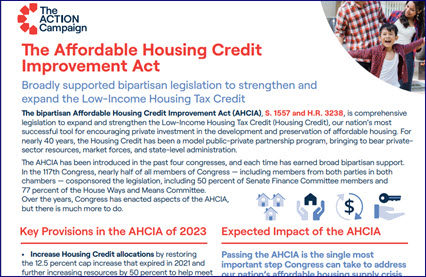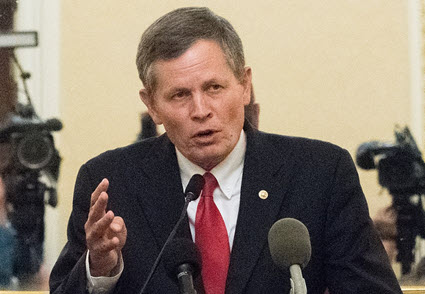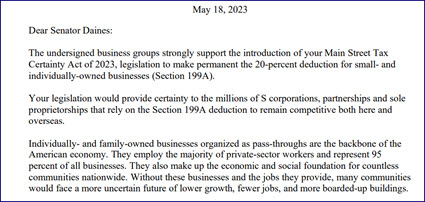
President Joe Biden and House Speaker Kevin McCarthy (R-CA) signaled progress this week on debt limit and federal spending talks after they assigned teams of negotiators to bang out an agreement before a looming national default “x-date” is reached in June. (BGov and CQ, May 18)
LKE Restrictions Rejected
Looming Deadline

House Democrats this week began preparing an emergency “discharge petition” to raise the debt ceiling if negotiators are unable to reach an agreement, though its odds of passing are uncertain. (Wall Street Journal, May 17)
# # #
 Bipartisan, bicameral legislation introduced last Thursday would significantly expand and improve the low-income housing tax credit (LIHTC). The tax credit, strongly supported by The Real Estate Roundtable, subsidizes the construction, rehabilitation, and preservation of affordable rental housing for low- and moderate-income tenants.
Increasing Supply
Bipartisan, bicameral legislation introduced last Thursday would significantly expand and improve the low-income housing tax credit (LIHTC). The tax credit, strongly supported by The Real Estate Roundtable, subsidizes the construction, rehabilitation, and preservation of affordable rental housing for low- and moderate-income tenants.
Increasing Supply


Yesterday, Senate Finance Committee member Steve Daines (R-MT) reintroduced legislation to make permanent the 20 percent deduction for pass-through business income (Section 199A), one of the cornerstone provisions of the Tax Cuts and Jobs Act of 2017 that expires at the end of 2025.
Deduction Sunset
Section 199A Permanency

While House Republicans are expected to introduce an economic growth package in the coming weeks that includes tax cuts, it is unclear whether the bill will address provisions such as Section 199A that are not scheduled to expire until the end of 2025.
# # #

Sam Zell, the founder and chairman of Equity Group Investments died yesterday due to complications from a recent illness. Mr. Zell was a leader in modernizing the REIT structure and was well known for his ability to revive distressed real estate assets, as well as turnaround troubled manufacturing, retail, travel, healthcare, and energy businesses. (Fortune and Wall Street Journal, May 18)
See www.samzelllegacy.com for a video retrospective of his many accomplishments and contributions to the investing and philanthropic communities.
# # #